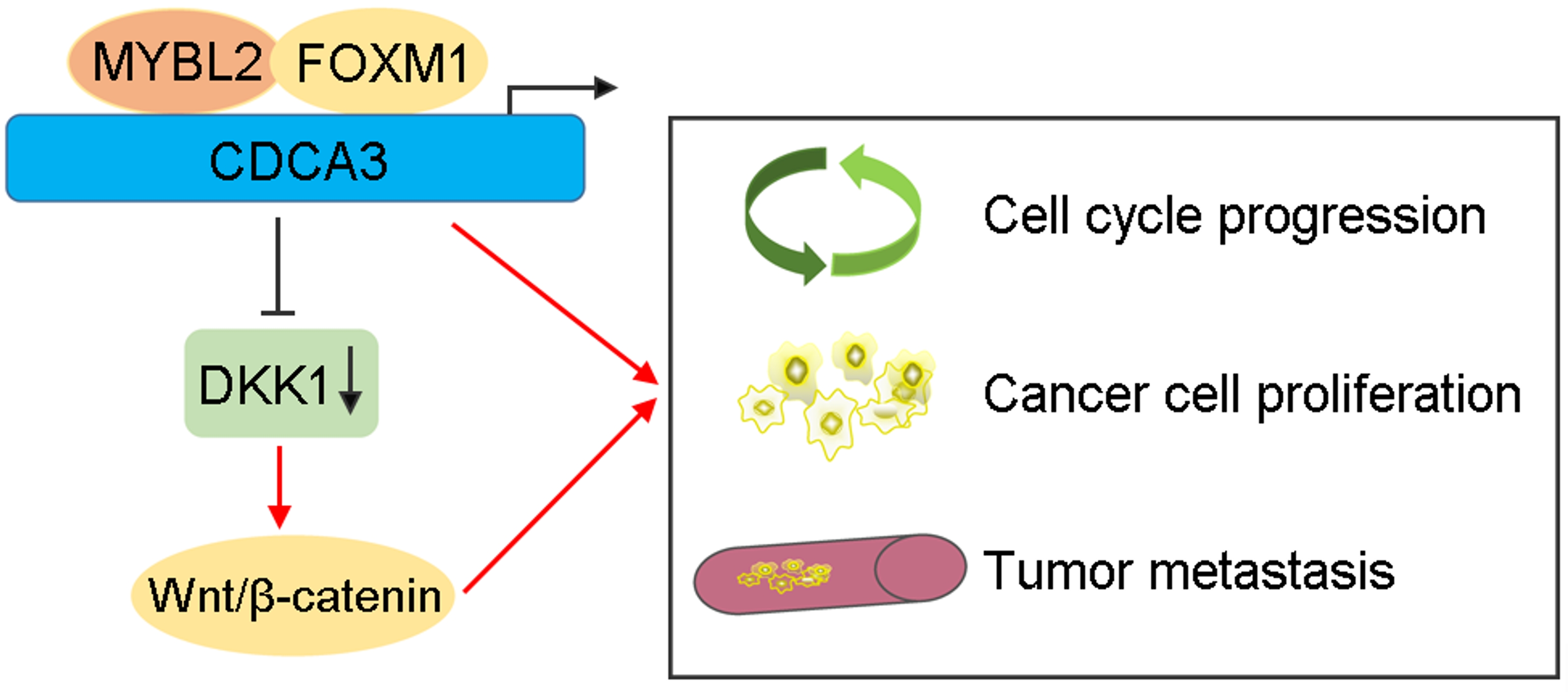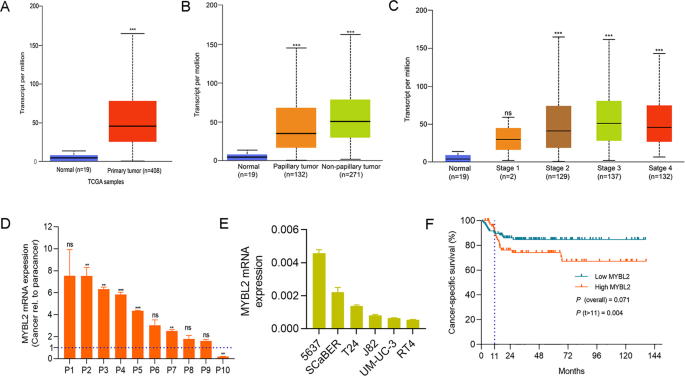MYBL2 promotes proliferation and metastasis of bladder cancer through transactivation of CDCA3
Published in Cancer
Bladder cancer (BLCA) is a common cancer in the urinary system. In 2020, it caused over 570,000 new cases and 200,000 deaths globally [1]. About 30% of BLCA patients have invasive tumors when first diagnosed, and their five-year survival rate after surgery is only about 50% [2,3]. This highlights the need for better understanding of BLCA and improving treatments.
Previously, we identified CDCA3 as a gene that increases BLCA cell growth and movement, and it could be an indicator of how the disease will progress [4]. However, how CDCA3 affects these processes is still unclear. We know that genes are often regulated by transcription factors, which control their activity.
We became interested in MYBL2, a transcription factor that might regulate CDCA3. MYBL2 is part of the MYB family of transcription factors, known for their roles in cell growth, survival, and development across various tissues. While MYBL2 has been linked to worsening conditions in several cancers like breast, prostate, lung, and digestive tract cancers, it can also suppress tumors in specific diseases like von Hippel-Lindau syndrome and some blood malignancies.

In this study, we focused on understanding how MYBL2 works in BLCA. We found that MYBL2 has a key role in regulating CDCA3 and thus influencing the aggressive characteristics of BLCA cells. This gives us new insights into how BLCA progresses and opens up possibilities for targeting these mechanisms in treatment.
References
[1] Sung H, et al. Global Cancer Statistics 2020: GLOBOCAN Estimates of Incidence and Mortality Worldwide for 36 Cancers in 185 Countries. CA Cancer J Clin 2021; 71: 209-249.
[2] Rimar KJ, et al. The emerging role of homologous recombination repair and PARP inhibitors in genitourinary malignancies. Cancer 2017; 123: 1912-1924.
[3] Pan CW, et al. JNK2 downregulation promotes tumorigenesis and chemoresistance by decreasing p53 stability in bladder cancer. Oncotarget 2016; 7: 35119-35131.
[4] Shen D, et al. The inhibitory effect of silencing CDCA3 on migration and proliferation in bladder urothelial carcinoma. Cancer Cell Int 2021; 21: 257.
Follow the Topic
-
Oncogene

This journal aims to make substantial advances in our knowledge of processes that contribute to cancer by publishing outstanding research.

Please sign in or register for FREE
If you are a registered user on Research Communities by Springer Nature, please sign in